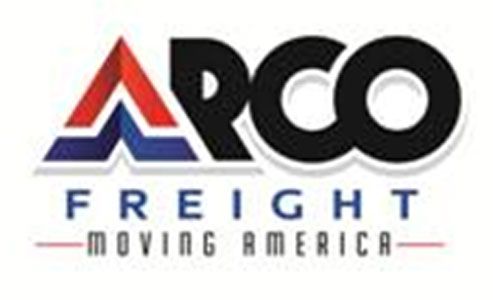Understanding the Roles: How Freight Forwarders Differ from Brokers in Logistics
In the world of logistics, understanding the roles of a freight forwarder vs. broker is crucial for businesses engaged in the movement of goods. These two intermediaries play pivotal roles in ensuring the smooth flow of products from manufacturers to consumers. In this article, we will delve into the fundamental differences between freight forwarders and brokers, shedding light on their distinct functions, responsibilities, and the situations in which each one is the right choice.
Freight forwarders act as logistics specialists who oversee various aspects of the shipping process. They are responsible for booking cargo space, managing paperwork, consolidating and deconsolidating cargo, handling customs clearance, and securing cargo insurance. In contrast, brokers act as intermediaries who connect shippers and carriers, negotiate freight rates, manage administrative tasks, conduct market research, and ensure regulatory compliance.
As we explore the key disparities between these two entities, we will help you navigate the decision-making process, enabling you to make informed choices when it comes to selecting the most suitable partner for your logistics needs. Let's embark on this journey to demystify the roles of freight forwarders and brokers in the logistics industry.
The Basics of Freight Forwarders
Freight forwarders, in simple terms, are the logistics experts who take on a comprehensive role in the transportation of goods. They have a rich history dating back to the days when trade was conducted on a global scale. Their primary functions encompass a wide array of tasks, making them a vital link in the supply chain.
At their core, freight forwarders are responsible for booking cargo space on various modes of transportation, such as ships, planes, trucks, and trains. This involves negotiating rates with carriers and ensuring that goods are moved efficiently. They also handle the cumbersome paperwork associated with international shipments, including bills of lading, customs documentation, and import/export permits.
One of their critical roles is cargo consolidation and deconsolidation, where they combine smaller shipments into larger ones for cost efficiency and then break down larger shipments upon arrival. Freight forwarders are well-versed in customs regulations and facilitate the smooth clearance of goods through customs checkpoints.
Additionally, freight forwarders often assist in obtaining cargo insurance to protect against potential losses during transit. This comprehensive approach to logistics management provides shippers with peace of mind, knowing that their goods are in capable hands.
In the next section, we will delve deeper into the advantages of using freight forwarders and dispel common misconceptions about their role in the logistics process.
The Role of Brokers in Logistics
Brokers, while also playing a crucial role in logistics, have a distinct set of functions compared to freight forwarders. They serve as intermediaries who facilitate connections between shippers and carriers, forging relationships that keep the supply chain moving smoothly.
At its core, a broker's primary function is to match shippers with carriers, helping them find the most suitable transportation solutions for their cargo. They negotiate freight rates on behalf of their clients, aiming to secure the best possible deals. This involves a deep understanding of market conditions, supply and demand dynamics, and current pricing trends.
In addition to matchmaking and rate negotiation, brokers handle various administrative tasks, ensuring that all documentation is in order for shipments. They assist with load tracking, scheduling, and addressing any issues that may arise during transit, acting as a valuable point of contact for both shippers and carriers.
Market research and analysis are also key responsibilities of brokers. They stay abreast of industry developments, regulatory changes, and market trends to provide informed guidance to their clients. This proactive approach helps shippers make strategic decisions to optimize their logistics operations.
Furthermore, brokers play a vital role in ensuring regulatory compliance, particularly in the context of transportation and customs regulations. They help shippers navigate the complex web of rules and requirements, ensuring that their shipments adhere to all necessary legal standards.
In the following sections, we will explore the advantages of using brokers and address some common misconceptions about their role in the logistics industry.
Key Differences Between Freight Forwarders and Brokers
Understanding the differences between freight forwarders and brokers is essential for making informed decisions when it comes to managing your logistics needs. While both serve vital roles in the supply chain, their scope, responsibilities, and relationships with clients vary significantly. Here, we will break down the primary distinctions between these two intermediaries.
Scope of Services: Freight forwarders provide end-to-end logistics solutions, handling everything from booking cargo space to customs clearance. They offer a comprehensive package that simplifies the shipping process for clients. On the other hand, brokers specialize in matchmaking and negotiation, focusing on connecting shippers with carriers and negotiating favorable freight rates.
Legal Status and Licensing: Freight forwarders typically require licensing and certification due to their involvement in various aspects of the transportation process. Brokers, while subject to regulations, have different licensing requirements, often based on their specific role within the logistics chain.
Relationship with Clients: Freight forwarders have a closer, long-term relationship with their clients, managing all aspects of the shipment. Brokers often have a more transactional relationship, as they connect shippers with carriers for individual shipments.
Pricing Structure: Freight forwarders often quote an all-inclusive price, covering various services in a single package. Brokers, on the other hand, negotiate separate rates for shippers and carriers, earning a commission or fee for their matchmaking services.
Liability and Responsibility: Freight forwarders typically assume more significant liability for the cargo they handle, as they are responsible for the entire logistics process. Brokers primarily act as intermediaries, with their liability limited to their specific role in the transaction.
Geographic Focus: Freight forwarders tend to have a broader geographic focus, handling international shipments and various modes of transportation. Brokers may specialize in specific regions or transportation modes, depending on their expertise.
By understanding these key differences, businesses can make well-informed decisions about whether to engage a freight forwarder or a broker to meet their specific logistics needs. In the following sections, we will explore scenarios and considerations for choosing the right intermediary for your particular situation.
When to Choose a Freight Forwarder vs. a Broker
The decision between using a freight forwarder or a broker hinges on various factors, and making the right choice can significantly impact your logistics operations. To help you navigate this decision-making process, we will delve into specific considerations for both shippers and carriers, highlight scenarios where each option is most advantageous, and explore the nuances of selecting the right intermediary.
Considerations for Shippers
Shippers, who are responsible for getting their goods from point A to point B, face several key considerations when choosing between a freight forwarder and a broker:
Complexity of the Shipment: If your shipment involves multiple modes of transportation, customs clearance, and complex documentation, a freight forwarder's comprehensive services may be the best fit. They can oversee all aspects of the logistics process, providing a seamless experience.- Desire for Hands-On Support: Shippers who prefer a more hands-on approach and want a single point of contact throughout the shipping process may find the personalized service of a freight forwarder appealing.
- Long-Term Relationships: If you have recurring shipping needs and seek a long-term logistics partner, a freight forwarder's commitment to end-to-end solutions aligns with your objectives.
- Cargo Insurance and Risk Management: Freight forwarders often offer cargo insurance services, providing added peace of mind for shippers concerned about potential losses during transit.
Considerations for Carriers
Carriers, responsible for transporting cargo on behalf of shippers, should also carefully evaluate the choice between a freight forwarder and a broker:
- Rate Negotiation: Carriers looking for consistent and fair rate negotiation may prefer working with brokers, who specialize in securing competitive rates for transportation services.
- Flexibility and Diverse Shipper Base: Brokers often have access to a wide range of shippers and shipments, offering carriers greater flexibility and opportunities for load matching.
- Reduced Administrative Burden: Brokers handle administrative tasks, freeing carriers from paperwork and documentation responsibilities, allowing them to focus on the actual transportation of goods.
- Regulatory Compliance: Brokers can assist carriers in navigating complex regulatory requirements, ensuring that their operations adhere to all legal standards.
- Short-Term Commitments: Carriers seeking flexibility and shorter-term commitments may find working with brokers more aligned with their business model
Ultimately, the choice between a freight forwarder and a broker should align with your specific logistics needs, objectives, and preferences. By carefully considering these factors, you can make an informed decision that optimizes your supply chain operations. In the subsequent sections, we will explore specialized industries, cost-effectiveness, and real-life examples to further illustrate the decision
making process.
Conclusion
In the dynamic world of logistics, the choice between a freight forwarder and a broker can significantly impact the efficiency and success of your supply chain. This article has provided you with valuable insights into the roles, differences, and considerations when selecting the right intermediary for your specific logistics needs.
In summary, while freight forwarders offer comprehensive end-to-end solutions suitable for complex shipments and long-term partnerships, brokers specialize in matchmaking, rate negotiation, and administrative support, providing flexibility and cost-effective options.
As you navigate the ever-evolving landscape of logistics, it's essential to stay attuned to industry trends, technological advancements, and regulatory changes. Adaptability and informed decision-making are key to optimizing your logistics operations.
For businesses seeking seamless logistics solutions, remember that [Client's Business Name] is here to assist you. Our experienced team understands the nuances of the logistics industry and is dedicated to providing tailored solutions that meet your unique requirements.
For more information or to discuss your logistics needs, please contact us at [Client's Phone Number]. We look forward to becoming your trusted logistics partner and contributing to the success of your supply chain.
Frequently Asked Questions:
- What is the primary difference between a freight forwarder and a broker in logistics?
- Freight forwarders offer end-to-end logistics services, managing various aspects of the shipping process, while brokers focus on connecting shippers and carriers and negotiating freight rates.
- When should I choose a freight forwarder over a broker for my logistics needs?
- Opt for a freight forwarder when you have complex shipments involving multiple modes of transportation, require hands-on support, or seek a long-term logistics partner for comprehensive solutions.
- What advantages do brokers offer in the logistics industry?
- Brokers provide flexibility, cost-effective rate negotiation, reduced administrative burden, access to a diverse shipper base, and specialized knowledge of market trends and regulatory compliance.
- How are freight forwarders and brokers adapting to technological advancements and sustainability concerns in logistics?
- Both intermediaries are embracing technology for efficiency and transparency, such as real-time tracking and digital platforms. They are also exploring sustainable transportation options, such as electric vehicles, to reduce their environmental impact.
- What resources can I explore to learn more about logistics intermediaries and make informed decisions for my business?
- You can read books on logistics and supply chain management, follow industry publications and websites, engage with professionals in online forums, and refer to reputable organizations such as FIATA, TIA, and relevant government agencies for regulatory information.










